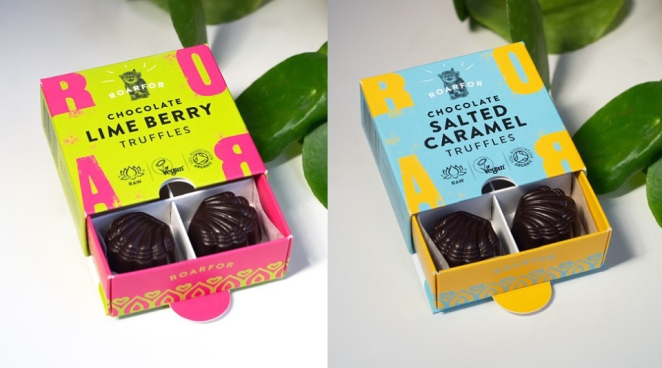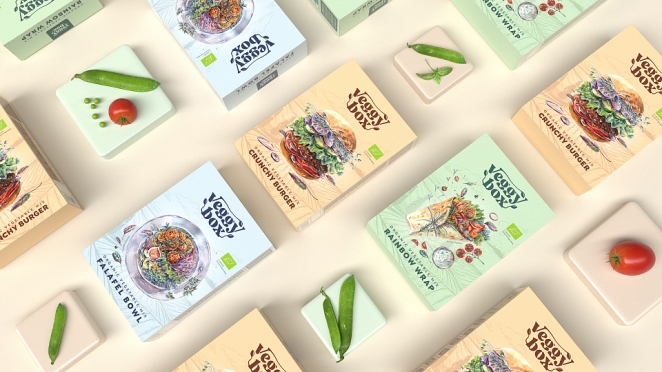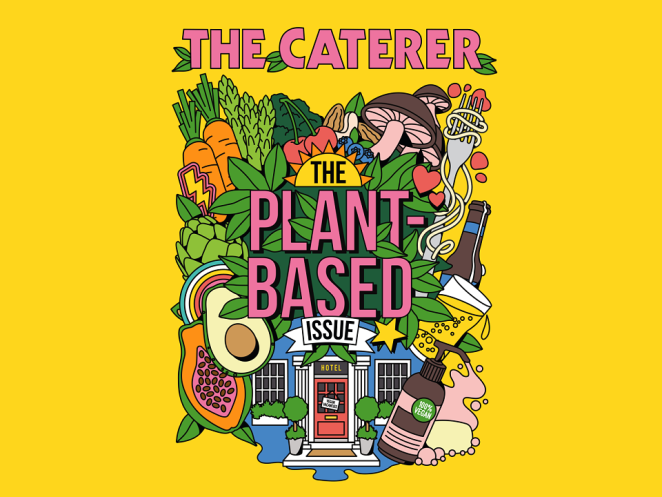Veganism is officially cool. That seems to be the general consensus among Gen Z right now, who see adopting vegan diet not only as a means of promoting animal welfare but the wellbeing of our planet. This is a good thing.
However, there remains a sector of the population (mainly older consumers) who still regard vegan food as “lesser then”. Indeed, my own wife often refuses to eat vegan food willingly. The only way I’ve been able to get her to eat it in the past is by tricking her into believing it’s meat. That, in a nutshell, is what vegan brands have been doing now for years and it’s not enough.
If vegan brands want to really carve out a space for themselves in the market and give themselves a chance of appealing to more than just vegans, they need to lean into their plant-based potential. Being vegan shouldn’t be seen as a setback but as an advantage! After all, how many people do you know now who have committed to meat-free days during the week or meat-free months?

Chris @ Design-Factory
These are the people these brands need to be targeting and this is how I think they should go about doing it.
Define Your USP
Beyond Ingredients: Your vegan brand’s USP goes beyond ingredients—it’s about impact. Highlight how your products contribute to health, sustainability, and animal welfare. Non-vegans may not adopt the lifestyle entirely, but they appreciate products that align with their values.
Health Benefits: Educate consumers on the health advantages of plant-based eating. Share stats on lower BMI, reduced risk of diseases, and overall well-being.
Environmental Impact: Showcase how choosing your brand helps combat climate change, conserve resources, and protect ecosystems.
Use Influencer Marketing with a Twist
Authenticity is the Key: Collaborate with influencers who aren’t exclusively vegan. Invite non-vegan influencers to try your products and document their journey. Authentic reviews bridge the gap and encourage curiosity.
Meat-Free Challenges: Create campaigns like “Meat-Free Mondays” or “Veganuary” to motivate non-vegans to explore plant-based options. These are concepts with viral potential that could go down a storm as short-term social media campaigns.
Craft Compelling Content
Engaging Blogs: Write engaging blog posts that demystify the concept of veganism. Address common misconceptions, share interesting recipes, and celebrate the natural flavour diversity that comes with embracing plant-based foods.
Advertising: Use social media platforms to tell stories. Feature real people enjoying your products—whether they’re vegans, flexitarians, or curious foodies. On a wider scale, invest in targeted ads that emphasize taste, convenience, and ethical choices. Show non-vegans that your brand fits seamlessly into their lives.

Martynas Vežbickas
In-Store Integration
Retail Partnerships: Collaborate with mainstream supermarkets. Place your products alongside familiar items, making the transition less intimidating and giving your brand a contextual space. Beyond Meat is an ideal example here, as you won’t find their burgers in the vegan aisle; you’ll find them right alongside their meaty brethren.
Tasting Events: Host in-store tastings. Let non-vegans experience the flavour firsthand. Chances are your brand will have spent thousands of hours (not to mention thousands of pounds) developing your product so let the people decide for themselves. Even do blind taste tests comparing it to non-vegan alternatives if you feel like you really need to prove a point. It worked for Pepsi!
Personalisation and Education
Tailored Messaging: Customise content based on consumer behaviour. If someone buys dairy milk, recommend your plant-based alternative alongside all the benefits (both personal and ecological) that come from making the switch.
Educational Campaigns: Bust myths, share nutritional facts, and address concerns. Knowledge empowers choices and so many meat eaters and vegetarians are still a little in the dark when it comes the veganism.
Beyond Food: Lifestyle and Beauty
Vegan Fashion: If your brand extends beyond food, promote cruelty-free fashion, cosmetics, and household products. A holistic approach to branding is always going to benefit a vegan company.
Collaborations: Partner with non-vegan brands for limited-edition collections. Show that veganism isn’t exclusive—it’s inclusive.

Linda Baritski aka SEASONOFVICTORY
A Compassionate Journey
Marketing vegan brands to non-vegans isn’t about conversion; it’s about connection and conviction. Appeal to their shared values, celebrate diversity, and invite everyone to savour a kinder, greener future without punching down and without selling your brand as a lesser alternative. Don’t apologise for your veganism!
If I was a stronger man, I’d be right there with you. But until they can manufacture a vegan steak that tastes and feels like a legitimate 8oz filet, I’ll be content with my two meat-free days a week.






